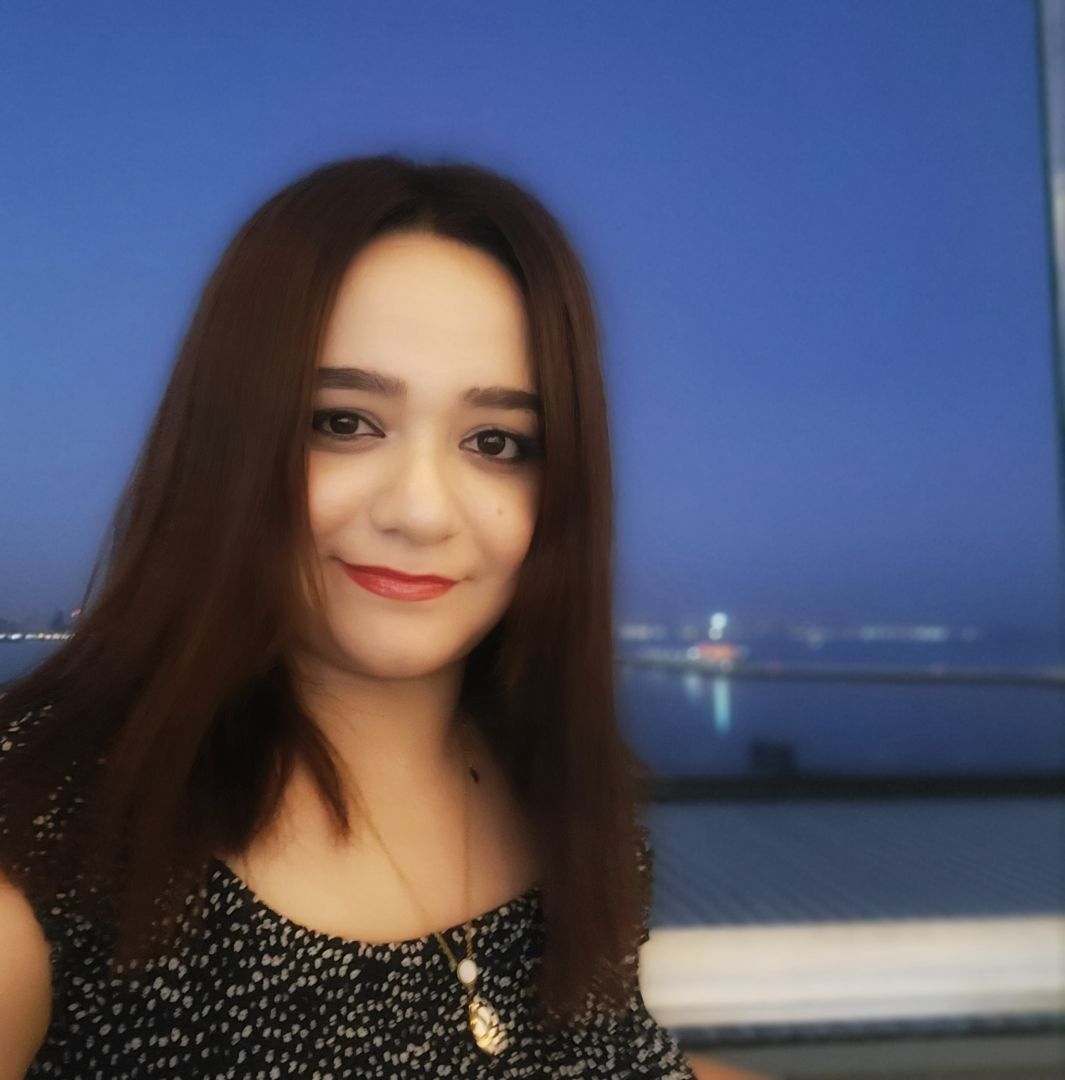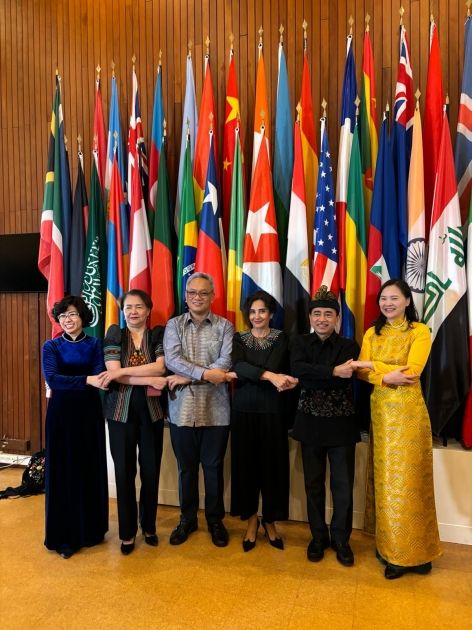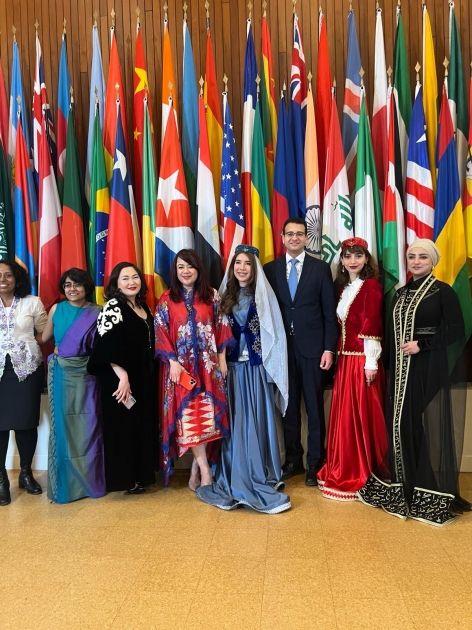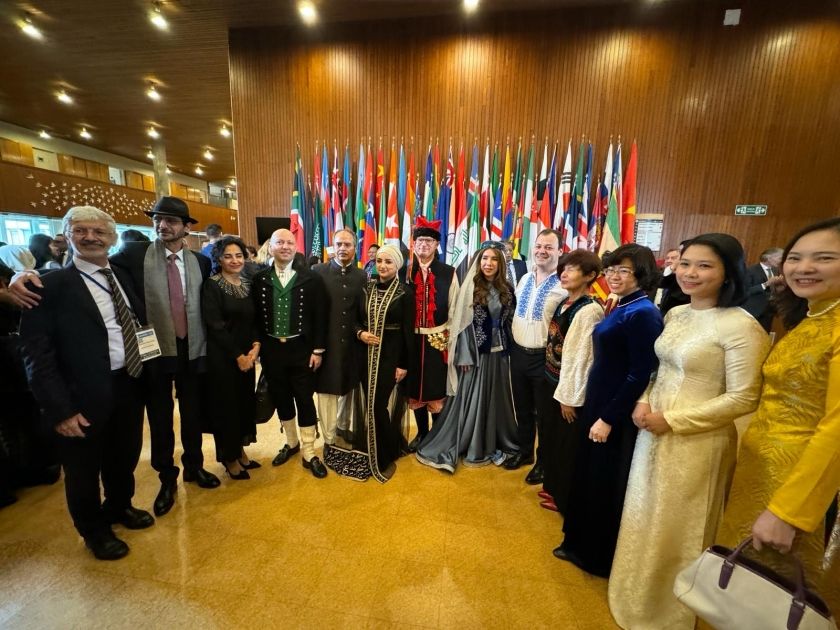Azerbaijani delegation marks Traditional Dress Day at UNESCO [PHOTOS]
![Azerbaijani delegation marks Traditional Dress Day at UNESCO [PHOTOS]](https://www.azernews.az/media/2024/03/28/frefrefre3.jpg)
Traditional Dress Day has been celebrated within the 219th session of the UNESCO Executive Board.
This initiative was put forward by the Permanent Missions of Indonesia and Poland to UNESCO in order to promote their shared cultural diversity and heritage, as well as mutual understanding, Azernews reports.
Azerbaijan's Permanent Delegation to UNESCO attended the last meeting of the Council in national costumes.
The Azerbaijani traditional costumes attracted attention with their elegance and delicacy.
The fabrics used in the traditional costumes include silk, flax, wool, or cotton. The finishing of clothes could make the simplest outfit expensive and rich in appearance.
With the use of laces and golden and silver threads, craftsmen created a real work of art. Coins were made from precious metals as ornaments that could be collected by whole generations.
The typical women's traditional dress of Azerbaijan consists of under and outer garments and clothes for the upper and lower body. A bag-shaped cover veil was an important part of the costume, which women wore while going out. Women also wore a short jacket called arkhalig with long sleeves, a fitting back and chest, and a wide opening in the front.
Men's costumes always represented the class affiliation of their owners. The national clothes of men in the 19th century included underclothing and overcoats. The overshirts for men were of two kinds: mid-cut collar and side-cut collar. Both of them had small yokes. Shirts for men were generally made of satin.
The traditional costumes of UNESCO member states aroused great interest.
Note that the 219th session of the UNESCO Executive Board heard the reports on the implementation of the program adopted by the Bureau and the General Conference of the Organization.
The session participants discuss issues such as follow-up to decisions and resolutions adopted during the previous sessions of the Executive Board and the General Conference, elimination of racial discrimination, racial hatred, and racial hate crimes in the world.
The "Bicycle for All: Bicycle for Sustainable and Healthy Lifestyles" initiative and actions taken by UNESCO towards increased global financing of media and information literacy (MIL) were also included in the agenda of the session.
As a UNESCO member, Azerbaijan has been actively engaged in promoting cultural diversity and heritage preservation.
The country has been constantly participating in UNESCO programs since 1992.
Through its efforts, Azerbaijan plays a significant role in UNESCO's mission to build peace, foster sustainable development, and foster intercultural dialogue through education, the sciences, culture, communication, and information.
In 2003, the parties signed a framework agreement on cooperation in the areas of culture, science, education, and communication, which allowed Azerbaijan to become one of the donors of UNESCO.
----
Laman Ismayilova is AzerNews’ staff journalist, follow her on Twitter: @lmntypewriterrr
Follow us on Twitter @AzerNewsAz
Here we are to serve you with news right now. It does not cost much, but worth your attention.
Choose to support open, independent, quality journalism and subscribe on a monthly basis.
By subscribing to our online newspaper, you can have full digital access to all news, analysis, and much more.
You can also follow AzerNEWS on Twitter @AzerNewsAz or Facebook @AzerNewsNewspaper
Thank you!




